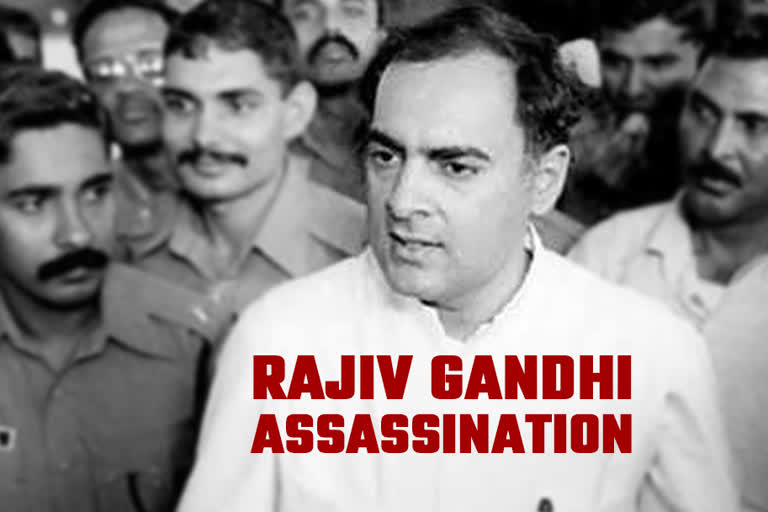Hyderabad: The Supreme Court on Tuesday pulled up the Tamil Nadu government over the delay in taking a decision on a mercy petition filed by a convict in the long-pending Rajiv Gandhi assassination case, and also pointed towards the lack of update in the status report filed by the Centre on CBI-led Multi-Disciplinary Monitoring Agency's (MDMA) investigation into the incident.
The case, which is being fought for the past 29 years, has witnessed several twists and turns.
Though all 26 accused were awarded death penalty by a Terrorist and Disruptive Activities (Prevention) Act (TADA) court in 1998, the Supreme Court confirmed capital punishment only in the case of Murugan, Santhan (both Sri Lankan Tamils), A G Perarivalan and Nalini, wife of Murugan.
While Nalini escaped the noose following a Tamil Nadu Cabinet decision and the Governor’s assent to it after an appeal by former Congress president and Rajiv Gandhi's widow Sonia Gandhi, the top court commuted the death sentence of Perarivalan, Santhan and Murugan to life imprisonment on grounds of a delay of 11 years in deciding their mercy pleas by the Centre.
Here's a timeline of the Rajiv Gandhi assassination case:
1991:
May 21: Former PM Rajiv Gandhi was assassinated at Sriperumbudur in Tamil Nadu by a woman suicide bomber, identified as Dhanu, at a poll rally. 14 others were also killed in the attack. Subsequently, 26 accused were arrested and over a dozen ended their own lives.
1992:
May 20:CBI-led SIT files charge sheet in TADA designated court at Poonamallee
1998:
Jan. 28:TADA court awards death penalty to all 26 accused put to trial
1999:
May 11: SC sentences four - Nalini, Santhan, Murugan and Perarivalan - to death, commutes death sentence of three, sets 19 others free Oct 17: The four death row convicts send clemency petitions to Tamil Nadu Governor
2000:
Apr 21:Tamil Nadu Governor accepts the State Cabinet's decision to commute the death sentence of Nalini to life imprisonment
Apr 28 : T.N. forwards clemency pleas of Santhan, Murugan and Perarivalan to President
2011:
Aug 12: President rejects the clemency petitions
Aug 26 : Execution of three convicts fixed for September 9, 2011
Aug 30 : Tamil Nadu Assembly adopts resolution recommending commutation of death sentence
2014:
Feb 18: SC commutes the death sentence on grounds of delay in disposing their mercy pleas
Feb 19: TN State Cabinet decides to immediately release Santhan, Murugan, Perarivalan, Nalini, Robert Pious, Jayakumar and Ravichandran; sends its decision to Centre under Section 435 CrPC.
Feb 20: SC on petition from Centre stays T.N. decision to release seven convicts
Apr 1:SC refuses to review its verdict commuting death sentence
Apr 25: SC refers matter on remission of sentence to a constitution bench and frames seven questions to be decided by it.
2015:
Jul 29: SC dismisses Centre's curative plea against commutation of the death penalty
Dec 3: Constitution Bench rules that Centre has primacy in matters of remission under Section 435 of CrPC
